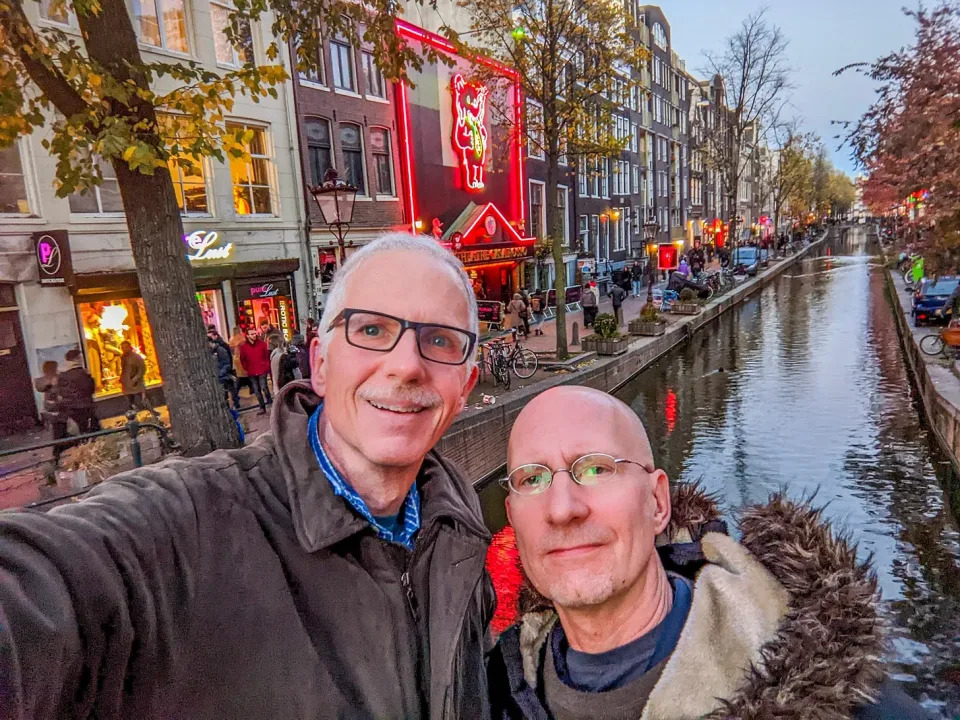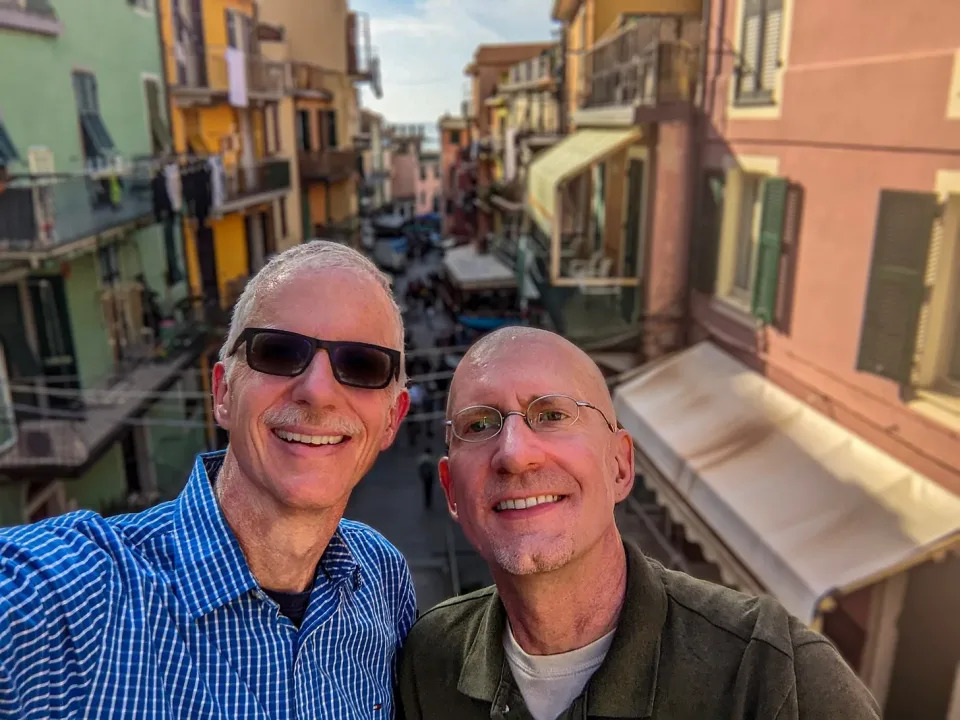If Trump Wins, How Easy Is It For Americans to Move to Another Country?
9 min readLater this year, Donald Trump could win the American presidential election.
If you’re okay with that, this article isn’t for you.
But if you’re an American and you find this prospect terrifying — if you thought Trump’s first term as president was a horror show, and you have a strong sense that a second time around, things would be much, much worse — then you might be looking for, uh, life-alternatives for 2025 and beyond.
What about leaving the United States and living somewhere else?
Some people obviously can’t do this because of personal limitations or obligations.
And some people will never consider anything like this because they refuse to give up the fight against everything Trump represents. I mean, what if the French had just surrendered to the Nazis?
ADVERTISEMENT
Advertisement
Okay, bad example, but you know what I mean.
Anyway, staying in America is a perfectly valid choice.
But so is leaving. It’s what my husband Michael and I decided on the evening of November 8, 2016, when Trump won the last time. Driving home from a very depressing Election Eve party, I turned to Michael and said, “What do you think about leaving the country?”
Michael thought about it for about two seconds and said, “Okay. Let’s do it.”
When we told our friends, I suspect many thought: Uh, huh, right. They’re just blowing off steam — they’ll never go through with it.
But two months later, we’d sold our house, and after helping to settle things with my elderly father, we finally left America at the end of 2017.
Seven years later, we both agree that it was the smartest decision we’ve ever made. We love our new life.
ADVERTISEMENT
Advertisement
The physical separation from our home country also gave us a much-needed perspective. We both think we see things in America much more clearly now.


As for the move itself, we also both agree it was easier than we expected. The hardest part was the mental leap.
Here are three ways you too could leave America, from the most difficult to the easiest. But I think they’re all fairly easy, at least if you’re middle-class — especially if you’re retired or can work remotely.
And for what it’s worth, none of these options require you to give up your American citizenship.
(1) Emigrate to another country on a long-term visa with a path toward permanent residency or citizenship.
This is how most Americans move to another country. The most popular long-term visas are “retirement visas,” though you don’t necessarily have to be retired or even older to be granted one.
ADVERTISEMENT
Advertisement
Retirement visas usually give you access to public services and put you on a pathway to permanent residency or even full citizenship.
In Spain, for example, a retirement visa is called a “non-lucrative visa.” You must prove you have a certain minimum level of income and assets, and you also have to buy private health insurance for the first year — though this costs a fraction of what you might pay in the United States. Then you’re allowed to stay in the country for a year, and you can renew the visa each year after that. After five years, you can apply for permanent residency.
How easy is this?
Of all the three options I’m suggesting, this may be the most difficult. But it’s still not that difficult.
Some countries, like Panama, are so eager to welcome American retirees that these visas give you substantial discounts on things like utilities, doctor’s visits, and even entertainment options like movie tickets, restaurants, and hotel rooms.
ADVERTISEMENT
Advertisement
Thailand, meanwhile, offers several different retirement visas, and also something called an “elite visa” for anyone where, for a one-time fee ($17,400 USD for five years, more for longer stays), you’re allowed long-term residency, but also various perks like free doctors’ visits and limos to airports.
What’s the catch?
You can’t be too poor — although in most countries, you don’t have to be “rich” either. To retire to Nicaragua, you only need to earn $600 a month, although in most countries, it will be more like $2000 to $3000.
Some retirement visas also have residency requirements. And if you spend more than 183 days or more in any country, you generally have to pay that country’s income taxes for the time you spend there. Their tax-rates might be lower than in the U.S., but they could be higher too.
(That said, most countries do have tax treaties with the U.S., which means you’ll never have to pay “double” taxes: you’ll just pay the rate of the country where you’re spending most of your time.)
ADVERTISEMENT
Advertisement
Finally, this option guarantees you’ll be dealing with a foreign bureaucracy, which can be difficult if you don’t know the culture or speak the language. You may have to pay for legal help, and there will also almost certainly be application fees.


(2) Emigrate via a “golden visa.”
Many countries offer “golden visas” which are different from, say, retirement visas in that they usually offer you (and your immediate family members) a much faster path to permanent residency or citizenship, and they have only very minimal residency requirements — maybe just a few days a year.
In exchange for that, you’re required to make a large investment in the country. Options often include buying property, investing in a local company or investment fund, or buying government bonds.
In Portugal, for example, you can get a golden visa by buying property for at least 500,000 euros (or about $540,000 USD) — or for $431,000 USD in lower-density areas. Another option is to donate or invest $270,000 USD in an arts organization. Lately, some folks have been satisfying this latter requirement by investing in Portuguese films.
ADVERTISEMENT
Advertisement
In other countries, the cost of a golden visa can be as low as $100,000 (in St. Lucia) or as high as $1,830,000 USD (in New Zealand).
How easy is this?
It’s fairly easy, at least if you’re fabulously wealthy.
Golden visas are especially attractive in European Union countries because they also include the right to live in any of the 26 other countries in the EU, and also a couple more non-EU countries that are part of the “open borders” area known as the Schengen Area.
In other words, if you buy yourself a golden visa in Portugal — or Spain, Greece, or Malta, three other countries that currently offer them — you can then live indefinitely almost anywhere in Western and Central Europe.
What’s the catch?
Well, these visas are expensive, and there are currently long backlogs in the most popular golden visa countries. Also, the investment costs don’t include application and legal fees, and also real estate taxes, which can easily add another $25,000 to the total.
ADVERTISEMENT
Advertisement
That said, the bulk of the investment is in an investment: you may not get the return that you’d get in, say, the U.S. Stock Market, but the money or property is still yours.
In Europe, golden visas are also increasingly controversial: critics argue they’ve driven up the cost of real estate for locals. Spain is currently phasing out its golden visa program entirely, and Portugal is considering doing the same — they’ve already greatly restricted the options for buying property. Greece and Malta are tightening their rules too.
And, of course, even with a golden visa, you’re still subject to local income taxes — although the lack of a residency requirement means you could avoid foreign taxes simply by not living in any one country for more than 182 days.
Here’s another fun fact: if Americans stay outside the U.S. for at least 330 days every year, they qualify for something called the Federal Earned Income Exemption, or FEIE, which means that in 2024, they’d owe no U.S. income taxes on income up to $126,500 (they are, of course, obligated to file a return, and they do still have to pay “payroll” taxes for Medicare and Social Security).
In other words, with a golden visa, it’s fairly easy to pay no income tax at all (up to a certain limit) anywhere in the world.
ADVERTISEMENT
Advertisement
The rich, amirite?


(3) Become a digital nomad and travel to different countries on “tourist visas.”
This is what Michael and I have done: seven years ago, we left America, and since then, we have traveled the world, simply moving to a new country every few months.
Most countries allow Americans to stay for up to ninety days with no visa or with something often referred to as a “tourist visa” — and these visas are often issued on arrival, with little or no fee or application process. Some countries allow even longer tourist visas: for example, in Mexico and the UK you can stay up to six months, and in the Republic of Georgia, you can stay as long as a year.
And some countries, like Mexico and Thailand, also allow tourists to make “visa runs,” exiting the country and then immediately returning, resetting the tourist visa (though some countries, including Thailand, are making this more difficult).
ADVERTISEMENT
Advertisement
Many countries also offer longer visas that are almost as easy as tourist ones: the UK has something called a “standard visa,” which allows multiple visits of up to six months or longer. And more and more countries are offering “digital nomad visas” where, if you can prove a certain level of income, countries will allow you to stay for a year or more.
But on tourist visas, you almost certainly pay no local income tax, and on most of these other visas, you pay no or only minimal tax as well.
Since digital nomads also qualify for the FEIE, this third option means even some non-rich folks can also owe no income tax anywhere in the world.
How easy is this?
Extremely easy, at least if you’re retired or work remotely. And unlike a golden or retirement visa, this requires no expensive legal fees. You barely have to concern yourself with foreign bureaucracies at all.
This option is also easily reversible: you’re not committed to anything, and you haven’t shelled out any money. If you leave America and decide it isn’t for you, you can easily return to the United States.
What’s the catch?
While many tourist or digital nomad visas are easily renewable, you do have to keep close track of your time; in many countries, overstaying your visa is a Very Big Deal. And that Schengen Area in Europe that I mentioned before? On a tourist visa, you can’t stay more than 90 days in any 180 days in that entire area. Unfortunately, that’s most of Western Europe and even much of Central Europe.
This means you’ll probably be moving around a lot. And since you’re moving so much, your “temporary” housing costs will be higher than, say, renting an apartment for a year in a single spot. You also obviously can’t have much in the way of possessions.
On the other hand, your overall cost of living will probably still be far lower than back in America. And again, you probably don’t have to pay any income tax.


The Bottom Line
If Donald Trump wins the presidential election, I can’t answer the question of whether you should leave America.
But I can answer the question about how easy it would be:
If you meet certain conditions, it’s probably easier than you think.
We’re a longtime couple who decided in 2017 to sell our house in Seattle and travel the world as “digital nomads.”
Subscribe to our newsletter to come along to the places we’re going next!




